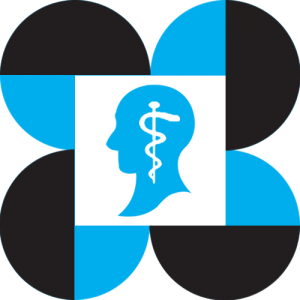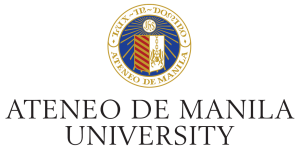What We Should Know about the New Sars-like Virus?: Summary and Highlights
The Philippine Council for Health Research and Development, Department of Science and Technology (PCHRD, DOST) in partnership with the Institute of Philippine Culture, Ateneo de Manila University (IPC, ADMU) is currently redeveloping PCHRD’s eHealth portal program with special focus on the PCHRD’s Drug Discovery and Development Program (DDDP). The eHealth Philippines (Philippine Electronic Health Information Village) was designed to be an internet-linked community where health specialist and generalist and other health enthusiasts can interact with each other on specific health issues and at the same time have access to the specialty database, journal articles, advisories, and directory type information. The eHealth portal was launched to the public in 1998 and redesigned in 2003, but was deactivated in 2008 due to management and sustainability issues. Now, it is currently being redeveloped and reactivated.
“What We Should Know About the New SARS-like Virus?” 11 October 2012 https://ehealth.ph
One of the objectives of the 2012 eHealth redevelopment project is the conduct of two online conferences on current and emerging health issues. These online conferences intend to strengthen the community-building aspect of PCHRD’s eHealth initiative by providing health experts and enthusiasts an enabling virtual environment where they can converge and discuss specific health-related issues without the constraints of time and space. The first eHealth online conference was held last 13-14 September 2012 with the topic entitled, “Virgin Coconut Oil (VCO): Kasalukuyang Kaalaman at Kaugnay na mga Programa”. Last 13 October 2012, another eHealth online conference entitled, “What We Should Know about the New SARS-like Virus?”, was conducted.
This new coronavirus (NCV) online conference intends to provide timely and relevant information about NCV. Five resource speakers were able to share their expertise regarding the new coronavirus (NCV) and experiences as well with the 2003 SARS outbreak. They are the following:
1) Dr. Maurizio Barbeschi, Department of Epidemic and Pandemic Alert Response, World Health Organization, Geneva (WHO, Geneva);
2) Dr. Tamano Matsui, World Health Organization-Western Pacific Region (WHO WPRO);
3) Dr. Jose Ramoncito Navarro, former officer, Field Epidemiology Training Program (FETP);
4) Dr. Faith Gaerlan, Medical Action Group (MAG); and
5) Professor Leo Quintilla, University of the Philippines Visayas (UPV). Dr.Troy Gepte of Ateneo Graduate School of Business Health Unit was the moderator of the conference.
A total of eleven participants (including project team members), mainly Filipino health professionals and social scientists, were able to join the discussion. The conference yielded significant insights regarding the new coronavirus. The discussion tackled the basic technical information about NCV and the sociocultural and political aspects of dealing with a health crisis. Essentially, the 2003 SARS outbreak experiences were referenced as the starting point for the NCV discussion. Updates about NCV were provided by Dr. Jose Ramoncito Navarro, Dr. Maurizio Barbeschi, and Dr. Tamano Matsui.
The discussion on the updates included the issue of NVC transmissibility, WHO investigations in Qatar and Saudi Arabia regarding the two laboratory confirmed NCV cases, the difference between NCV and SARS virus (properties and clinical manifestations), and the Hajj pilgrim travel and health advisories. One sub-topic that figured prominently amongst participants is the “Readiness for Health Emergencies”. A series of insights were shared regarding the country’s preparedness on the possibility of having another outbreak.
Specifically, the following issues were brought up:
1) creating an efficient crisis management team during a health crisis;
2) the functionality of the Barangay Health Emergency Response Teams (BHERTs) that were formed during the 2003 Philippine SARS outbreak;
3) optimizing the IT field in responding to health emergencies;
4) the emphasis on learning from the past and the need to utilize the data and inputs to “form an integrated response plan and preparedness plan to address another such problem in the future”; and
5) considerations about mitigating the effect of such public health emergencies (e.g. H1N1) particularly concerns on the health of health workers and the continuity of health care by having a sufficient manpower complement to take care of sick patients.
From these insights, multi-sectoral cooperation is crucial in addressing the various issues confronting the country’s capacity of dealing with an outbreak. Observations regarding the responsible reporting of updates on NCV and efficient ways of disseminating the right information to the general public were also discussed. The challenge is to have a set of clear and concrete guidelines that will be promptly implemented and more so, strictly followed by the media people and other stakeholders to avoid news sensationalism and public anxiety. Also, risk communication training for health managers is needed. Effectively communicating this information to the general public most especially at the local levels is crucial for public awareness. Dealing with a health crisis involves not only the perspectives of the health experts but also, of the social scientists. The clinical management of individuals and communities possibly infected by a coronavirus must be complemented with social and psychological supports. Social stigmatization sets in once someone is detected to be a possible carrier of the coronavirus because of the perceived risks of an infectious disease. A holistic perspective is therefore crucial to effectively deal with an outbreak.
The eHealth Philippines portal, through this NCV online conference, aimed of providing the public the necessary information about NCV. The country’s readiness for another health crisis, based on the conference, entails multi-perspective approach and sectoral convergence.
The eHealth portal is an online platform for this kind of health endeavour. References: Conference proper, see this site: https://ehealth.ph/index.php/forum/coronavirus-what-we-should-know-about-the-new-sars-like-virus.
Detailed summaries by Dr.Troy Gepte, see this site: https://ehealth.ph/index.php/forum/coronavirus-what-we-should-know-about-the-new-sars-like-virus/125-summaries-of-the-online-conference
Institute of Philippine Culture. (2012). IPC Hosted Online Forum on Novel Coronavirus. Retrieved from http://www.ipc-ateneo.org/node/110.
Tags: CORONAVIRUS, Online Conference



